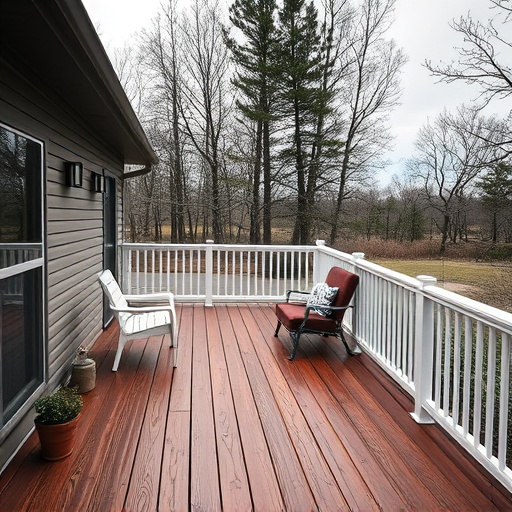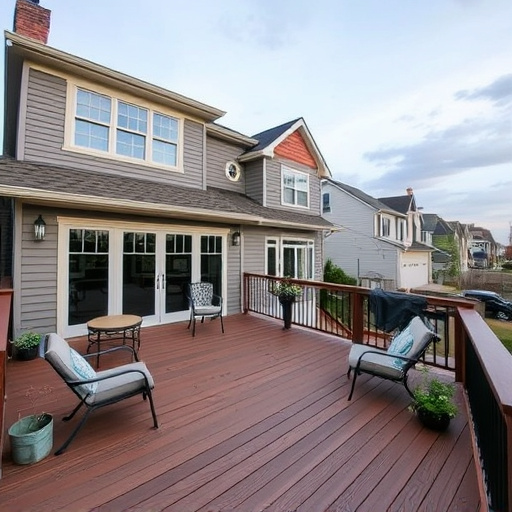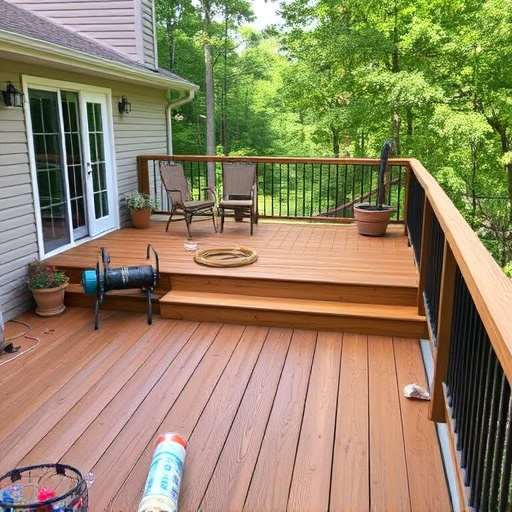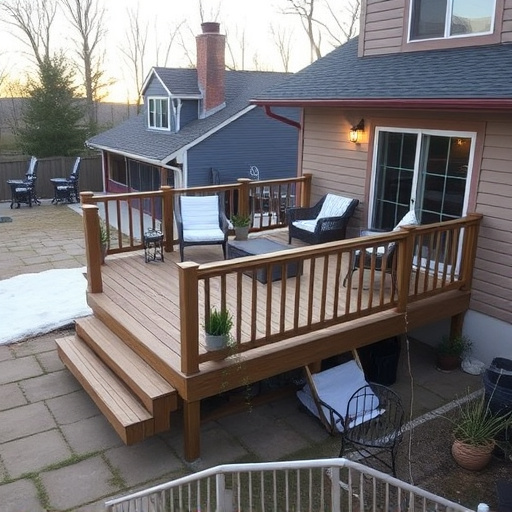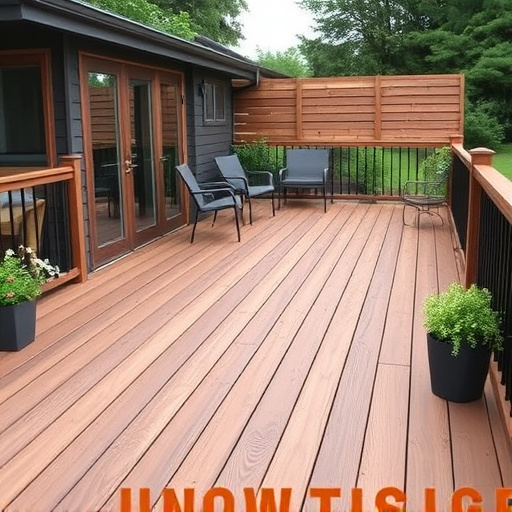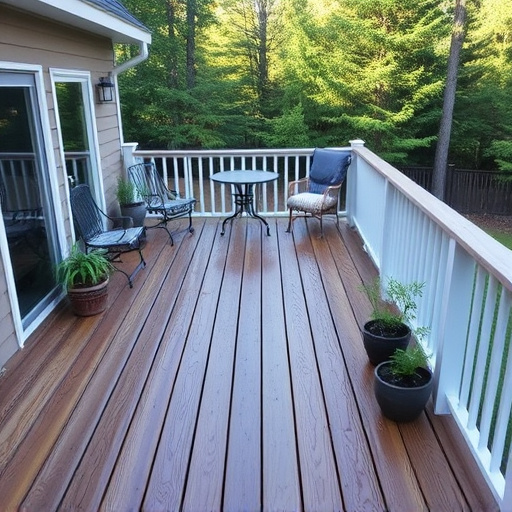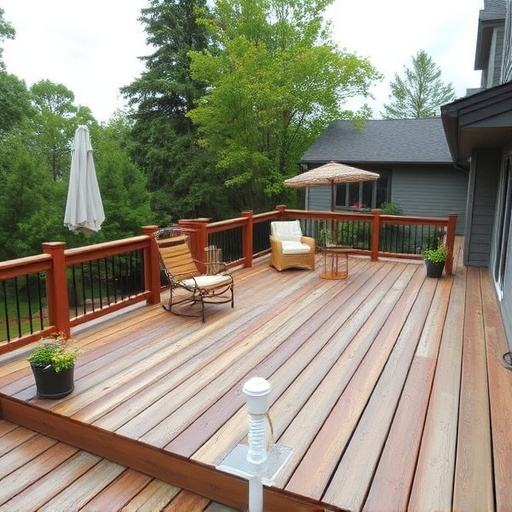Slip and fall accidents on decks and exterior surfaces pose significant risks and legal implications for deck builders and property owners. To mitigate these dangers, especially in areas with moisture or high foot traffic (critical for both residential and commercial spaces), deck builders emphasize the importance of slip-resistant decking designs and materials. This not only enhances safety but also ensures durable installations that cater to commercial clients' needs, including siding, gutters, and roofing services.
In today’s world, ensuring safe outdoor spaces is paramount for both residential and commercial settings. Slip-resistant decking designs have emerged as a critical consideration to prevent accidents and protect against liability. This article explores the growing importance of slip resistance in deck building, providing insights into understanding slip hazards, innovative solutions, and designing aesthetically pleasing decks that prioritize safety. Deck builders can leverage advanced materials, technologies, and design strategies to create durable, attractive, and secure outdoor living spaces.
- Understanding Slip Hazards and Their Impact
- – Definition of slip resistance
- – Importance in residential and commercial spaces
Understanding Slip Hazards and Their Impact
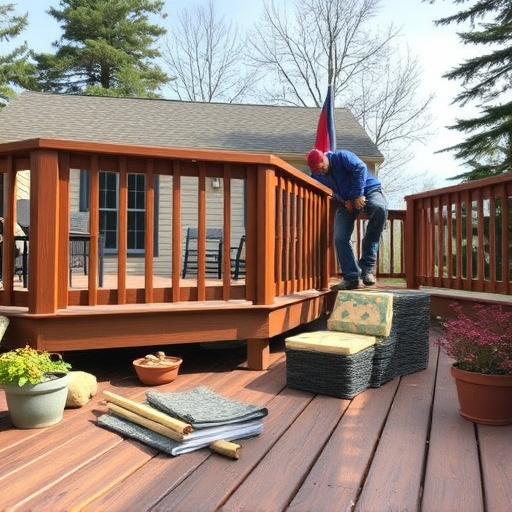
Slips and falls are a significant concern for both residential and commercial properties, leading to potential injuries and legal implications. Understanding slip hazards is crucial for deck builders and property owners alike. Various factors contribute to slippery surfaces, including wet conditions, irregular textures, and lack of traction. In outdoor spaces like decks, these risks can be exacerbated by rain, snow, or ice accumulation, especially if the decking material does not offer adequate grip.
For home service solutions and exterior home improvements, prioritizing slip-resistant designs is essential. Commercial roofing installations should also consider these factors to ensure safe access for maintenance and repair teams. By choosing the right decking materials and implementing effective non-slip treatments, deck builders can significantly reduce the risk of accidents, providing both residential and commercial clients with durable, safe, and aesthetically pleasing outdoor living spaces.
– Definition of slip resistance
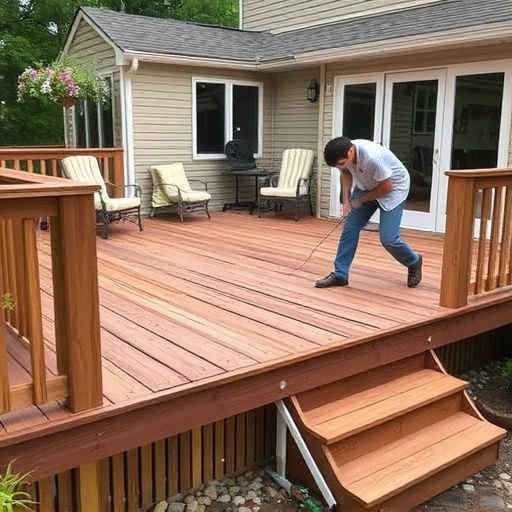
Slip resistance refers to a surface’s ability to prevent slips and falls by providing adequate traction. It’s a critical safety feature for both residential and commercial spaces, particularly in areas exposed to moisture or where foot traffic is high. Deck builders understand the importance of slip-resistant decking designs, as they play a vital role in ensuring the safety of occupants while enhancing the overall functionality of outdoor living spaces. This becomes even more crucial when considering residential roofing and home service solutions, where preventing accidents is paramount.
For commercial spaces, such as offices or retail stores with extensive sidewalks and entrances, slip-resistant decking can be a game-changer. Commercial siding options often incorporate anti-slip properties to create safe entryways for customers and employees alike. Deck builders specializing in these areas employ various techniques and materials to achieve optimal slip resistance, ensuring that surfaces remain secure and comfortable throughout different weather conditions.
– Importance in residential and commercial spaces
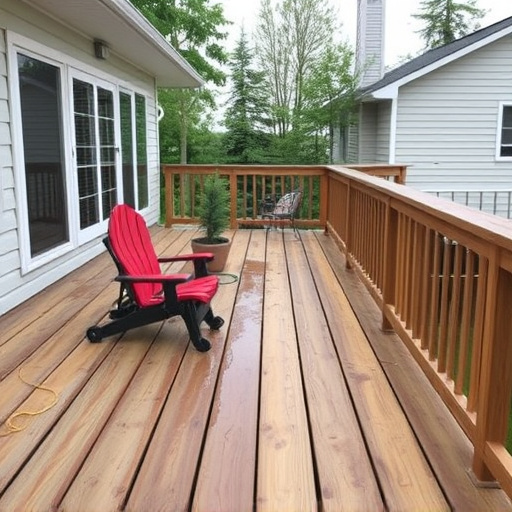
In both residential and commercial settings, slip-resistant decking is a vital safety measure that prevents accidents and falls. For deck builders looking to serve their clients well, incorporating anti-slip features into designs is essential. This becomes even more critical in commercial spaces where high foot traffic ensures a constant risk of slips and falls, leading to potential liability issues for businesses.
Residential properties also benefit from slip-resistant decking, especially outdoor areas with water features or frequent rain. By prioritizing this design element, deck builders can enhance the safety of homeowners and their guests while ensuring long-lasting durability that commercial clients require, often in conjunction with other essential services like siding replacement, siding and gutters, and commercial roofing.
When it comes to choosing the right decking for your space, prioritizing slip resistance is a smart move for both residential and commercial properties. As discussed, slip hazards can have severe consequences, so selecting appropriate materials and designs is essential. Deck builders can play a vital role in enhancing safety by offering tailored solutions that cater to various environments, ensuring peace of mind for all users. By understanding the impact of slip hazards and embracing innovative, slip-resistant decking designs, property owners can create vibrant, safe outdoor spaces that are enjoyed for years to come.








